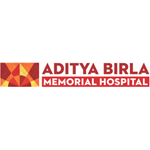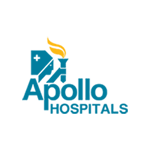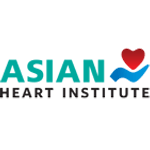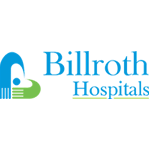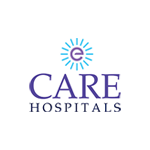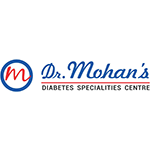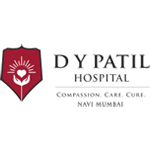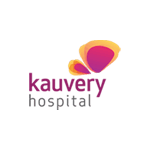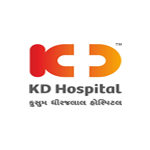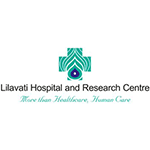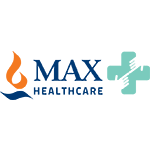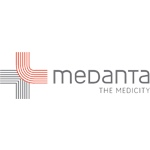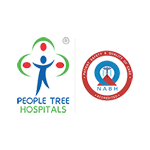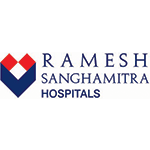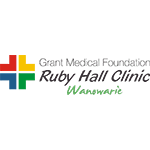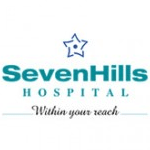Course Description
Cardiac Rehabilitation is increasingly recognized as an integral component of the continuum of care for patients with cardiovascular disease, providing a multidisciplinary approach including exercise programs to reduce morbidity and mortality risk. With a rising number of cardiac disease survivors and an aging population, more patients need to be rehabilitated by therapists with the knowledge and skills required to ensure a better quality of life for them.
The Fellowship in Cardiac Rehabilitation – Level I course allows you to simultaneously maintain a professional role in clinical practice while enhancing your understanding of the numerous components of cardiac rehabilitation through an easy, concise teaching algorithm (multiple visual aids, case presentations, and interactive elements). Additionally, the course covers the latest evidence-based exercise testing and prescription guidelines, implementation of the optimal exercise protocols, behavioral change strategies, lifestyle approaches, medical management, and risk factor modifications.
The Fellowship in Cardiac Rehabilitation – Level I course designed by Medvarsity is a structured program that covers the components of cardiac rehabilitation, namely
● Emphasizing the importance of physical activity and exercise to improve the mood and reduce the risk factors.
● Education on the benefits of balanced nutrition and lifestyle modifications among various age groups and other comorbidities
● Understand the importance of counseling and address the psychosocial factors impacting health
The Medvarsity Learning Design framework (Certificate, Advanced Certificate, and Fellowship – Level I & II) is based on Kirkpatrick’s model of e-learning and allows the systematic consumption and application of the content.
We at Medvarsity strive to equip every physician with the ability to fast-track their career and enable them to better serve the communities in which they practice. Join us and let us impact healthcare through education.
Eligibility: MBBS graduates, GPs, Medical Students, Physiotherapists/ Physiotherapy interns, Rehabilitation physicians, Rehabilitation trainees, and Nurses.
Course Validity: 7 months. There will be an extra charge for the extension of the course validity.
ENQUIRE NOW to know more about this course
Course Outline
Introduction to Cardiac Rehabilitation
-
- Heart and Circulatory System
- Common Cardiac Disorders
- Coronary Artery Disease
- Valvular Heart Disease
- Valve Replacement
Risk Stratification
-
- Functional Capacity
- Psychosocial Status and Patient Education
Chest Physiology and Physiotherapy
-
- Evaluation of the Chest, Breathing Exercises, Exercises to Mobilize the Chest
- Coughing
- Postural Drainage
Physical Activity and Heart Diseases
-
- Physical activity and Fitness
- Musculoskeletal Fitness
- Exercise Physiology
- Bioenergetics of Exercise
- Neuromuscular System
- Benefits of Exercise
Phases in Cardiac Rehabilitation
-
- Introduction, Importance, Indications, and Evidence-Based Cardiac Rehabilitation
Role of Exercise in Cardiac Rehabilitation
-
- Exercise Intolerance, Exercise Testing Devices
- Exercise Protocols
- Exercise Testing in Chronic Heart Failure
- Coronary Heart Disease and Valvular Heart Disease
Cardiac Nutrition
-
- Nutritional Lifestyle Counselling and Dietary Intake in Heart Disease
- Nutritional Aspects in Malnutrition, Cachexia and Frailty
Congenital Heart Disease and Rehabilitation
-
- Cardiac Rehabilitation in Children, Adolescents, and Adults with Congenital Heart Disease
Cardiac Rehabilitation in Elderly Patients
-
- Benefits of Cardiac Rehabilitation in the Elderly
Cardiac Rehabilitation in Low-Risk Patients
-
- Assessment of Low-Risk Patients
- Prescription for Aerobic Endurance and Dynamic Resistance Training
- Precautions and Safety in Exercise Training for low-risk Patients
Cardiac Rehabilitation in Specific Cases
-
- Cardiac Rehabilitation after Cardiac Surgery
- Cardiac Rehabilitation after Angina Pectoris and Acute Myocardial
- Infarction
- CR in Heart Failure Patients with Implanted Devices
Cardiac Rehabilitation in Comorbidities
-
- Lipid and Weight Management
- Cardiac Rehabilitation in Hypertension
- Cardiac Rehabilitation in Diabetes Mellitus
- Cardiac Rehabilitation in Pulmonary related issues
- Cardiac Rehabilitation in Peripheral Arterial Disease
- Cardiac Rehabilitation in Arthritis
Psychosocial Rehabilitation of Cardiac Rehabilitation
-
- Importance of Counselling and Recommendations for Healthy Recovery
Course Description
Cardiac Rehabilitation is increasingly recognized as an integral component of the continuum of care for patients with cardiovascular disease, providing a multidisciplinary approach including exercise programs to reduce morbidity and mortality risk. With a rising number of cardiac disease survivors and an aging population, more patients need to be rehabilitated by therapists with the knowledge and skills required to ensure a better quality of life for them.
The Fellowship in Cardiac Rehabilitation – Level I course allows you to simultaneously maintain a professional role in clinical practice while enhancing your understanding of the numerous components of cardiac rehabilitation through an easy, concise teaching algorithm (multiple visual aids, case presentations, and interactive elements). Additionally, the course covers the latest evidence-based exercise testing and prescription guidelines, implementation of the optimal exercise protocols, behavioral change strategies, lifestyle approaches, medical management, and risk factor modifications.
The Fellowship in Cardiac Rehabilitation – Level I course designed by Medvarsity is a structured program that covers the components of cardiac rehabilitation, namely
● Emphasizing the importance of physical activity and exercise to improve the mood and reduce the risk factors.
● Education on the benefits of balanced nutrition and lifestyle modifications among various age groups and other comorbidities
● Understand the importance of counseling and address the psychosocial factors impacting health
The Medvarsity Learning Design framework (Certificate, Advanced Certificate, and Fellowship – Level I & II) is based on Kirkpatrick’s model of e-learning and allows the systematic consumption and application of the content.
We at Medvarsity strive to equip every physician with the ability to fast-track their career and enable them to better serve the communities in which they practice. Join us and let us impact healthcare through education.
Eligibility: MBBS graduates, GPs, Medical Students, Physiotherapists/ Physiotherapy interns, Rehabilitation physicians, Rehabilitation trainees, and Nurses.
Course Validity: 7 months. There will be an extra charge for the extension of the course validity.
Course Outline
Introduction to Cardiac Rehabilitation
-
- Heart and Circulatory System
- Common Cardiac Disorders
- Coronary Artery Disease
- Valvular Heart Disease
- Valve Replacement
Risk Stratification
-
- Functional Capacity
- Psychosocial Status and Patient Education
Chest Physiology and Physiotherapy
-
- Evaluation of the Chest, Breathing Exercises, Exercises to Mobilize the Chest
- Coughing
- Postural Drainage
Physical Activity and Heart Diseases
-
- Physical activity and Fitness
- Musculoskeletal Fitness
- Exercise Physiology
- Bioenergetics of Exercise
- Neuromuscular System
- Benefits of Exercise
Phases in Cardiac Rehabilitation
-
- Introduction, Importance, Indications, and Evidence-Based Cardiac Rehabilitation
Role of Exercise in Cardiac Rehabilitation
-
- Exercise Intolerance, Exercise Testing Devices
- Exercise Protocols
- Exercise Testing in Chronic Heart Failure
- Coronary Heart Disease and Valvular Heart Disease
Cardiac Nutrition
-
- Nutritional Lifestyle Counselling and Dietary Intake in Heart Disease
- Nutritional Aspects in Malnutrition, Cachexia and Frailty
Congenital Heart Disease and Rehabilitation
-
- Cardiac Rehabilitation in Children, Adolescents, and Adults with Congenital Heart Disease
Cardiac Rehabilitation in Elderly Patients
-
- Benefits of Cardiac Rehabilitation in the Elderly
Cardiac Rehabilitation in Low-Risk Patients
-
- Assessment of Low-Risk Patients
- Prescription for Aerobic Endurance and Dynamic Resistance Training
- Precautions and Safety in Exercise Training for low-risk Patients
Cardiac Rehabilitation in Specific Cases
-
- Cardiac Rehabilitation after Cardiac Surgery
- Cardiac Rehabilitation after Angina Pectoris and Acute Myocardial
- Infarction
- CR in Heart Failure Patients with Implanted Devices
Cardiac Rehabilitation in Comorbidities
-
- Lipid and Weight Management
- Cardiac Rehabilitation in Hypertension
- Cardiac Rehabilitation in Diabetes Mellitus
- Cardiac Rehabilitation in Pulmonary related issues
- Cardiac Rehabilitation in Peripheral Arterial Disease
- Cardiac Rehabilitation in Arthritis
Psychosocial Rehabilitation of Cardiac Rehabilitation
-
- Importance of Counselling and Recommendations for Healthy Recovery

